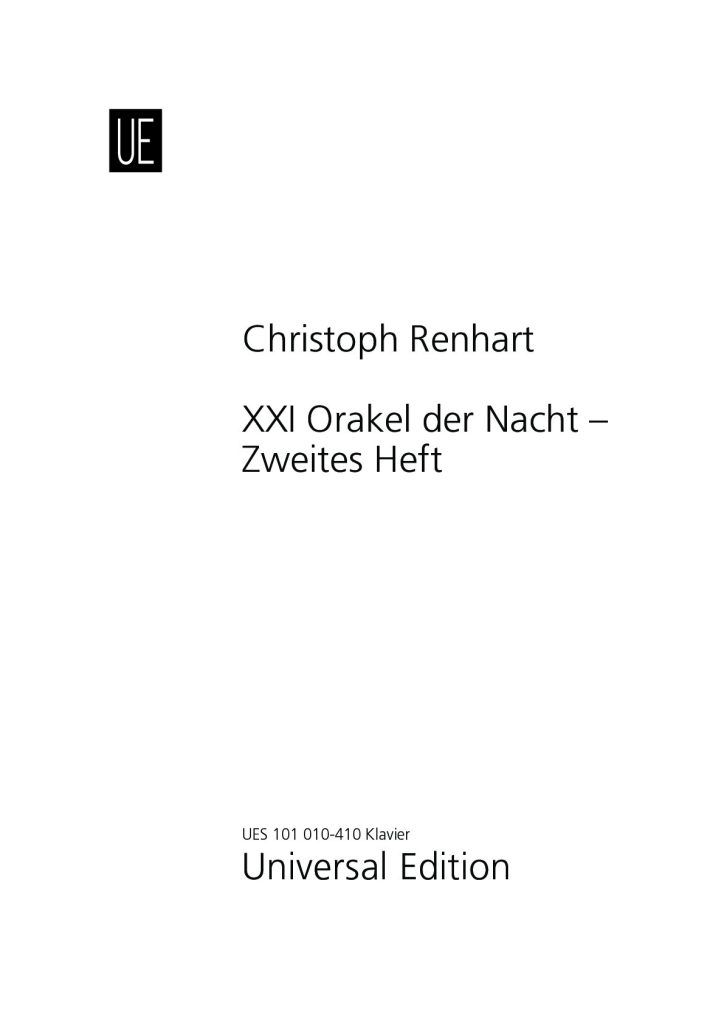Marley’s Ghost
for baritone and ensemble (2020)
EN
«Marley was dead: to begin with.» Thus Charles Dickens begins one of his most famous narratives, the name of which literally means ‹a Christmas song›. Dead, or let‘s better call it well-worn, copybook and totally hackneyed by being cinematized a little bit too often, is basically everything today, which comes close to brushing against this advent faerie tale that has been pancaked so very often in order to fit into any TV show where Bill Murray might appear. Why, this being the case, starting here?
Christmas comes back every year, come hell or high water. As dead as old Marley may appear—that is to say «dead as a door-nail»—as vitally he is still haunting ubiquitously as a ghost. The world has been most ardous ever since and of all things it‘s Christmas when we expect even the grumpiest fellows to come in with apparent brouhaha of felicity. In the middle of the mess the big guns are hauled out: bell-roars, glistening candlelight-beflickered straw stars and an e‘en celestial haze of pathos and liquorice. All humbug!
In my music one can hear all the ingredients of the humbug merged in such a way that a dramaturgical course arises out of it. This pathway runs along selected passages from Dickens‘s novel. The narrator eventually turns into the ghost of his own figure.
«Marley‘s Ghost» was composed in 2017 for the baritone Georg Klimbacher and the pianist Andreas Fröschl, who premiered the piece in the same year at Vienna‘s Arnold Schoenberg Center. I wrote the version for baritone and ensemble in the spring of 2020. The orchestration means a recreation in many regards: A differentiation in layers of tonal colours led to new harmonic illuminations or to compositional proliferations. A major challenge was the translation of those shades into an orchestral language which had already been delineated by the use of inside-the-piano techniques. The realisation of the extended version of «Dickens‘s humbug» was essentially inspired by Morgana Petrik, whom this version is cordially dedicated.
DE
»Marley was dead: to begin with.« So beginnt Charles Dickens eine seiner bekanntesten Erzählungen, die wörtlich betrachtet eigentlich ›ein Weihnachtslied‹ bedeutet. Tot, oder sagen wir besser: abgedroschen, abgeschrieben und vom vielen Verfilmen völlig ausgeleiert, ist heute im Grunde alles, was auch immer dieses bis hin zu einer fernsehvertauglichten Bill Murray-Auskitschung plattgewalzerte Adventmärchen auch nur anzustreifen drohte. Warum also hier beginnen?
Weihnachten kommt alle Jahre wieder, komme was wolle. So tot der alte Marley auch scheint — nämlich »dead as a door-nail« — so lebendig spukt er immer noch als allgegenwärtiger Geist herum. Die Welt war immer schon die Mühsamste und ausgerechnet zu Weihnachten erwartet man selbst von den grantelndsten Menschen einen Mindesthang zu überschwänglichem Glücksgetue. Dazu werden schwere Geschütze aufgefahren: Glockengebrüll, funkelndes, kerzenlichtumflattertes Strohgestirn und ein gar himmlischer Nebel aus Pathos und Lakritze. Alles Humbug! In meiner Musik hört man all die Zutaten des Humbugs so miteinander vermengt, dass sich daraus eine eigene Dramaturgie entspinnt. Diese verläuft entlang ausgewählter Textstellen aus Dickens‘ Roman. Der Erzähler verfällt dabei immer mehr seiner eigenen Geschichte und verwandelt sich am Ende selbst in den Geist seiner eigenen Figur.
»Marley’s Ghost« entstand 2017 für den Bariton Georg Klimbacher und den Pianisten Andreas Fröschl, die die Musik im selben Jahr im Arnold Schönberg Center in Wien zur Uraufführung brachten. Die Fassung für Bariton und Ensemble schrieb ich Anfang 2020. Die Orchestrierung bedeutet dabei zugleich eine Neugestaltung in vielerlei Hinsicht: Eine Ausdifferenzierung in klangfarblichen Schichten führte an vielen Stellen zu einer harmonischen Neuausleuchtung oder zu satztechnischen Wucherungen. Eine besondere Herausforderung stellte die Übersetzung jener Schattierungen in eine orchestrale Sprache dar, die durch eine erweiterte Spieltechnik im Klavier quasi bereits vorskizziert war. Die Realisierung dieser erweiterten Version »Dickens’schen Humbugs« wurde maßgeblich von Morgana Petrik angeregt, der die neue Fassung herzlich gewidmet ist.
INSTRUMENTATION:
flute, clarinet in Bb, soprano saxophone (also baritone saxophone), horn, tenor trombone, percussion (1 player), piano, violin, viola, violoncello, double bass
PERCUSSION INSTRUMENTS:
vibraphone, glockenspiel, tubular bells, bass drum, timpani, large suspended cymbal, maracas
DURATION:
12’30 minutes
PUBLISHED BY:
Universal Edition
RECORDING:
March 22, 2021 • Wien, Ehrbar-Saal • Ensemble Zeitfluss • Edo Micic, conductor • Georg Klimbacher, baritone
